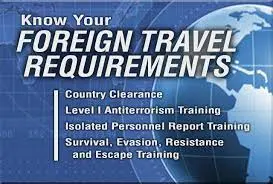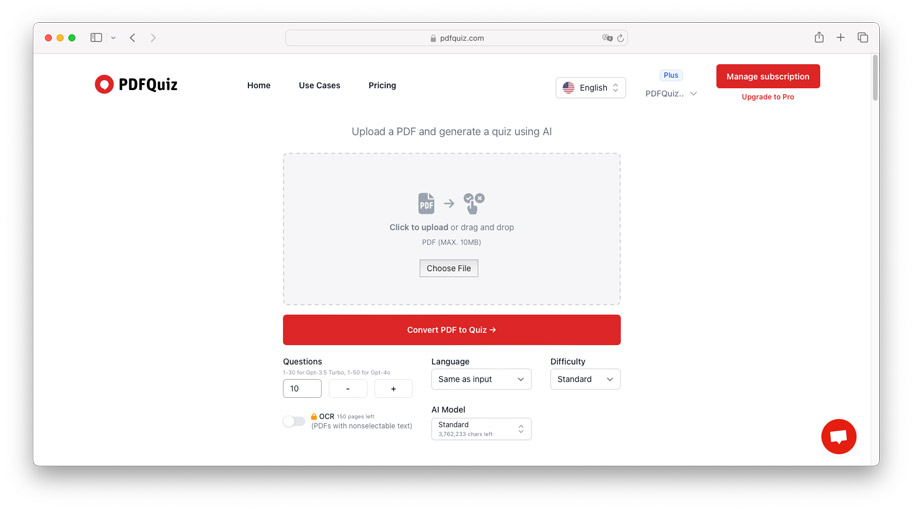When traveling to foreign countries, it is essential to prioritize your safety and security. One crucial aspect of preparation is receiving a defensive foreign travel briefing.
This briefing equips travelers with the necessary knowledge and skills to navigate potential risks and threats in unfamiliar environments. But how often should you receive these briefings?
Importance
Defensive foreign travel briefings play a crucial role in ensuring the safety and security of individuals when traveling abroad. These briefings provide important information on potential risks and threats in unfamiliar environments, helping travelers make informed decisions and avoid dangerous situations.
As global situations can change rapidly, it is imperative to stay up to date with the latest information and guidance. By attending regular briefings, you can familiarize yourself with current safety protocols, cultural nuances, and local laws that may impact your trip.
Moreover, defensive foreign travel briefings go beyond just providing information. They also equip you with practical skills and strategies to handle unforeseen circumstances, such as emergencies or security incidents. These briefings can empower you to act swiftly and intelligently, ensuring your own well-being and that of your fellow travelers.
Foreign travel briefing?
Now that we understand the importance of defensive foreign travel briefings, it is crucial to discuss how frequently you should receive them to maximize their effectiveness. The frequency of these briefings may vary depending on several factors, including the destination, your travel activity, and the current global security landscape.
As a general guideline, it is recommended to review and update your defensive foreign travel briefing at least once a year or before any international trip. This ensures that you have the latest information on potential risks and threats, as well as any changes in safety protocols.
However, certain circumstances may warrant more frequent briefings. If you are visiting a country with a volatile security situation, it is advisable to receive a briefing closer to your departure date or even upon arrival.
Remember, staying informed and prepared is key to a safe and secure travel experience. By attending regular defensive foreign travel briefings, you can ensure that you are equipped with the knowledge and skills necessary to navigate unfamiliar environments confidently.
Preparing for a safe and secure trip abroad
When it comes to traveling abroad, safety should always be a top priority. In addition to receiving regular defensive foreign travel briefings, there are several other steps you can take to ensure a safe and secure trip.
First and foremost, research is crucial. Before embarking on any international trip, it is essential to thoroughly research your destination. Familiarize yourself with local customs, laws, and regulations, as well as any potential health and safety risks. The more you know about your destination, the better prepared you will be to navigate potential challenges.
Secondly, it is recommended to register with your country’s embassy or consulate in the country you will be visiting. This will provide an additional layer of security and assistance in case of emergencies or unforeseen circumstances.
It is always wise to have a contingency plan. Make copies of important travel documents, such as your passport and travel itinerary, and leave them with a trusted friend or family member. Lastly, staying vigilant and aware of your surroundings is crucial. Pay attention to local news and any travel advisories issued by your government.
Risk management
Defensive foreign travel briefings play a crucial role in ensuring the safety and security of travelers. These briefings, provided by government agencies or security firms, are designed to inform individuals about potential risks and challenges they may encounter while traveling abroad.
The frequency at which you should receive defensive foreign travel briefings varies depending on several factors. These may include the nature of your travel, the destination you are visiting, and the current security situation in that area.
During these briefings, you will be given important information about the region’s political climate, potential security threats, and any recent incidents that may impact your travel plans. You may also learn about local customs and cultural norms to help you navigate the destination smoothly.
These briefings serve as an invaluable tool in risk management and contribute to enhancing the overall safety of your travel experience.
Typical defensive foreign travel briefing
A typical defensive foreign travel briefing covers a wide range of topics to ensure that travelers are well-prepared for their journey. These briefings are designed to give you a comprehensive understanding of the potential risks and challenges you may face while traveling abroad.
One of the main topics covered in these briefings is the current political climate of the destination country and any ongoing conflicts or tensions that may affect your safety. Understanding the political situation will allow you to make informed decisions about where to visit or avoid during your trip.
Security threats are another crucial aspect discussed in defensive foreign travel briefings. These may include terrorism, civil unrest, or high crime rates in specific areas. By being aware of these threats, you can take appropriate precautions and make sure your travel plans align with the safest options available.
Health and medical considerations are also covered in these briefings. This may include information on required vaccinations, prevalent diseases in the region, and recommended precautions to maintain good health while abroad.
Wrap-up
Receiving a defensive foreign travel briefing is crucial to ensuring your safety and well-being while traveling abroad. These briefings cover a wide range of topics, including the current political climate, security threats, local customs, health considerations, and personal safety.
By attending these briefings, you are equipped with the knowledge and tools necessary to make informed decisions and adapt to your environment. Understanding the potential risks and challenges you may face allows you to take appropriate precautions and make the safest choices throughout your journey.
We will delve into real-life examples of how these briefings have helped travelers during their trips abroad. These stories will further highlight the importance of receiving a defensive foreign travel briefing and the positive impact it can have on your travel experience.







